11 Best Herbal Tinctures For Itchy Scalp
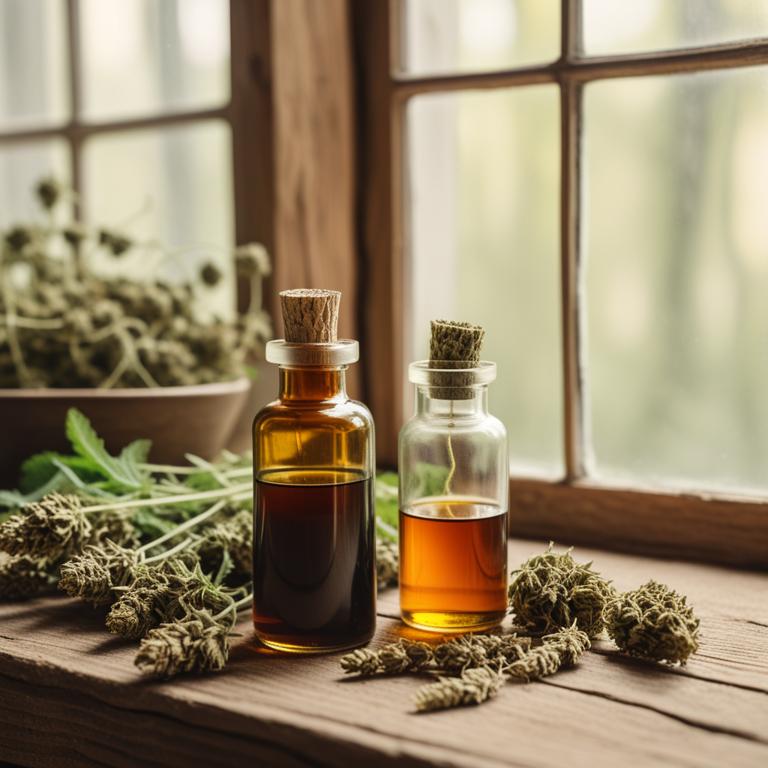
Herbal tinctures for Itchy scalp are concentrated liquid extracts derived from plants, herbs, and other natural ingredients, used to treat and soothe scalp irritations.
These herbal remedies offer numerous benefits, including anti-inflammatory and antifungal properties, which help to reduce itching, flaking, and redness associated with itchy scalp.
Examples of herbal tinctures that can be used to treat itchy scalp include tea tree oil tincture, which combats fungal infections and reduces inflammation; neem oil tincture, which has antiseptic and antifungal properties to combat scalp infections; sage oil tincture, which reduces inflammation and promotes healthy scalp growth; and rosemary oil tincture, which improves circulation and reduces dandruff.
Additionally, other herbal tinctures such as lavender oil tincture, chamomile oil tincture, and apple cider vinegar tincture can also be used to soothe and calm the scalp, promoting a healthy and itch-free scalp.
According to "Current topics in medicinal chemistry", tinctures for itchy scalp may be effective using essential oils such as tea tree oil, thyme, and Aloe vera, which have been reported to demonstrate anti-dandruff activity by disrupting the microbial growth associated with dandruff formation.
Below there's a list of the 11 best herbal tinctures for itchy scalp.
- 1. Aloe barbadensis tinctures
- 2. Urtica dioica tinctures
- 3. Equisetum arvense tinctures
- 4. Taraxacum officinale tinctures
- 5. Echinacea purpurea tinctures
- 6. Avena sativa tinctures
- 7. Melissa officinalis tinctures
- 8. Thymus serpyllum tinctures
- 9. Calendula officinalis tinctures
- 10. Rosmarinus officinalis tinctures
- 11. Lavandula angustifolia tinctures
Also you may be interested in...
TODAY'S FREE BOUNDLE
Herb Drying Checklist + Herbal Tea Shopping List + Medicinal Herbs Flashcards
Enter you best email address below to receive this bundle (3 product valued $19.95) for FREE + exclusive access to The Aphotecary Letter.
$19.95 -> $0.00
1. Aloe barbadensis tinctures
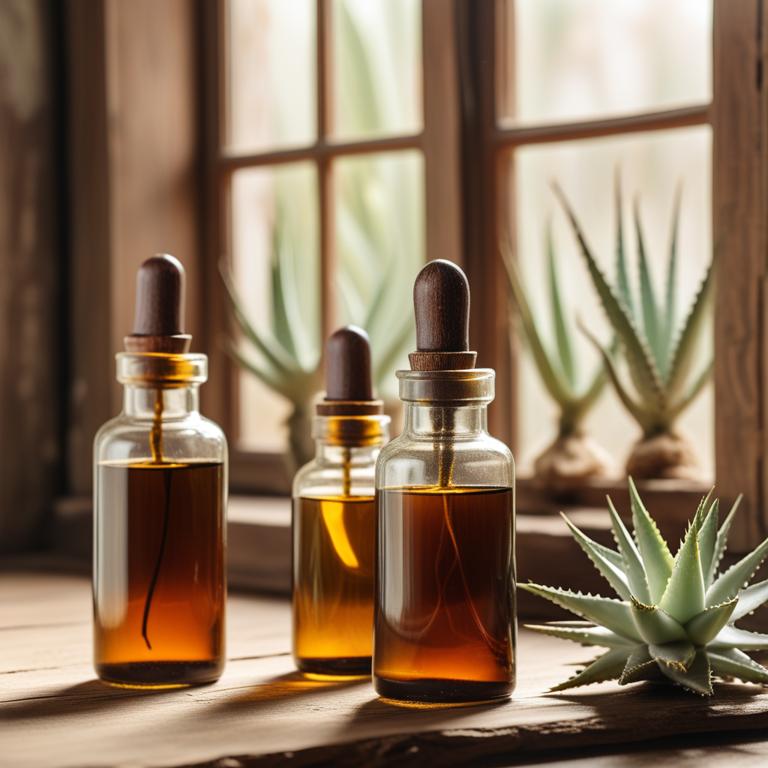
Aloe barbadensis tinctures have been widely used to treat the itchy scalp ailment, also known as dandruff or seborrheic dermatitis, due to its anti-inflammatory, antimicrobial, and antifungal properties.
The soothing and calming effects of aloe barbadensis tinctures help to reduce irritation and inflammation on the scalp, thereby providing relief from itching and flakiness.
The bioactive constituents of aloe barbadensis, such as aloin, aloe-emodin, and vitamin E, contribute to its therapeutic effects by inhibiting the growth of fungal and bacterial agents that may exacerbate the condition.
The use of aloe barbadensis tinctures as a natural remedy for itchy scalp ailments offers numerous benefits, including reduced risk of adverse reactions, cost-effectiveness, and long-term management of symptoms.
2. Urtica dioica tinctures
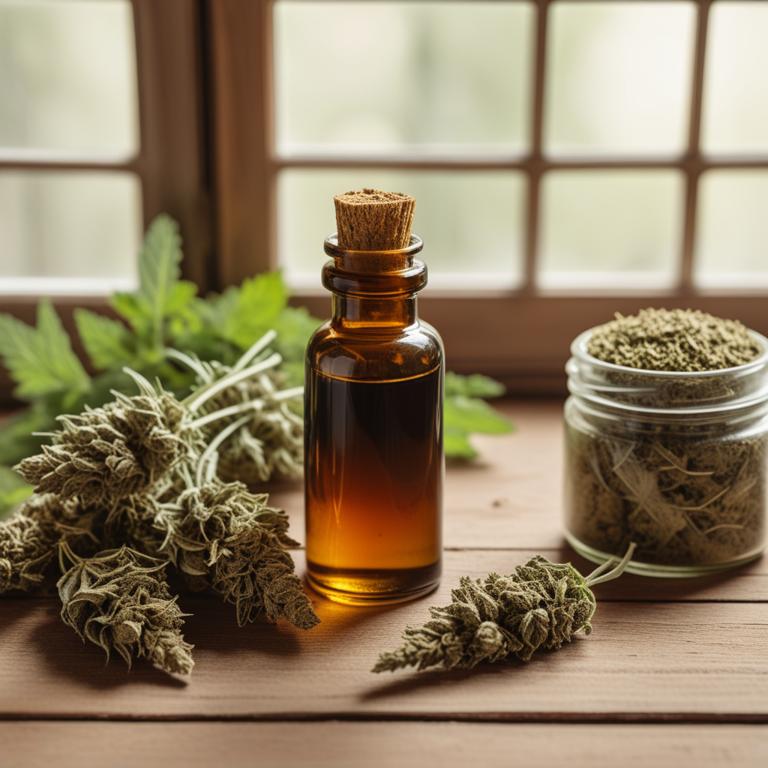
Urtica dioica tinctures have been traditionally used to treat itchy scalp ailments, including conditions such as dandruff and seborrheic dermatitis.
The anti-inflammatory and antiseptic properties of this herbal preparation help to soothe and calm the scalp, reducing irritation and inflammation.
The bioactive constituents of Urtica dioica, including flavonoids and phenolic acids, exhibit antioxidant and anti-inflammatory activities that help to combat the underlying causes of itchy scalp conditions.
By reducing inflammation and promoting a healthy scalp environment, Urtica dioica tinctures can provide relief from itchy scalp symptoms and promote overall scalp health.
3. Equisetum arvense tinctures
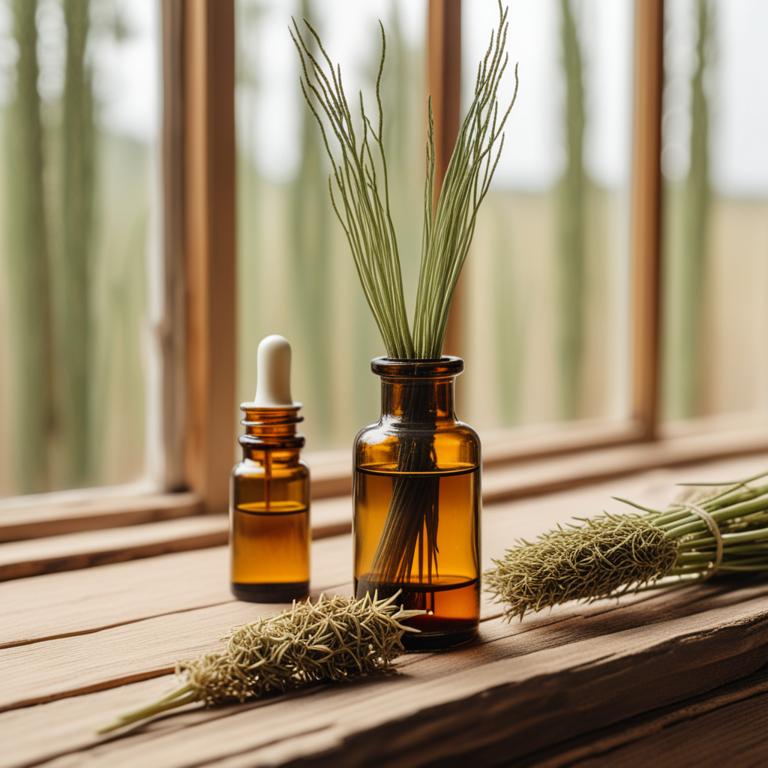
Equisetum arvense tinctures have been traditionally used to treat the itchy scalp ailment, also known as dandruff or seborrheic dermatitis, due to their anti-inflammatory and antifungal properties.
This herbal preparation helps to treat the ailment by reducing inflammation, soothing the scalp, and controlling the growth of fungus that can contribute to the condition.
The bioactive constituents of Equisetum arvense tinctures, such as isoflavonoids and saponins, play a crucial role in its therapeutic effects, including its ability to modulate the immune response and inhibit the growth of pathogenic microorganisms.
The benefits of using Equisetum arvense tinctures to treat itchy scalp include reduced symptoms, improved scalp health, and a natural, non-invasive approach to managing the condition.
4. Taraxacum officinale tinctures
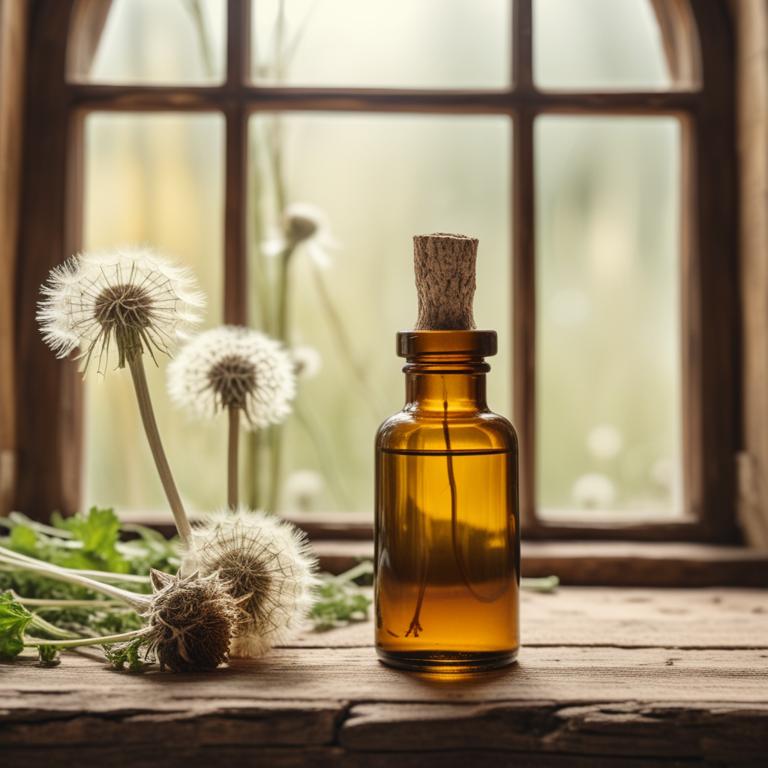
Taraxacum officinale tinctures, a herbal preparation derived from the dandelion plant, possess anti-inflammatory and antifungal properties that help to treat the itchy scalp ailment, also known as dandruff.
The tincture's ability to soothe and calm the scalp, reducing irritation and inflammation, makes it an effective remedy for this condition.
The bioactive constituents present in Taraxacum officinale tinctures, including flavonoids, phenolic acids, and sesquiterpenes, contribute to its therapeutic effects by inhibiting fungal growth and modulating the immune response.
By using Taraxacum officinale tinctures, individuals can experience the benefits of reduced itchiness, flaking, and discomfort, promoting a healthier and more balanced scalp.
Related Study
According to the study "Experimental & applied acarology", Taraxacum officinale tinctures, derived from the common dandelion plant, have shown significant acaricidal activity against ticks and may potentially be used to treat conditions like itchy scalp caused by external parasites.
5. Echinacea purpurea tinctures

Echinacea purpurea tinctures have been traditionally used to treat the itchy scalp ailment, also known as dandruff, due to its anti-inflammatory and antifungal properties.
The herbal preparation helps to soothe and calm the scalp, reducing inflammation and itching associated with this condition.
The bioactive constituents present in Echinacea purpurea tinctures, such as alkylamides and polyphenols, have been found to exhibit antimicrobial activity, which helps to combat fungal infections that can contribute to dandruff.
By using Echinacea purpurea tinctures, individuals may experience relief from dandruff symptoms, including reduced itching and flaking, and a healthier, more balanced scalp.
6. Avena sativa tinctures
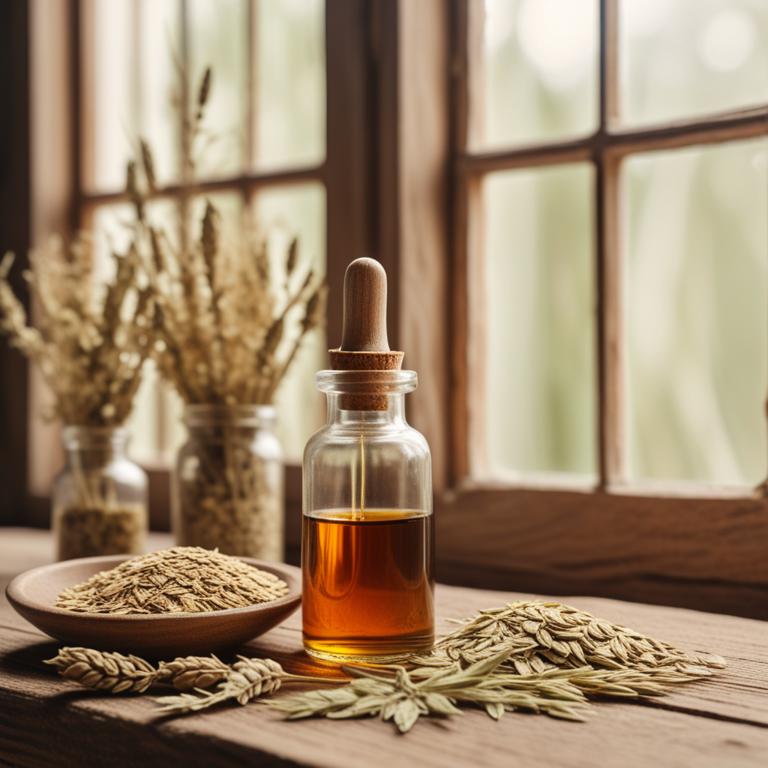
Avena sativa tinctures, derived from the oat plant, have been used to treat the itchy scalp ailment known as dandruff and seborrheic dermatitis.
The anti-inflammatory and antifungal properties of Avena sativa tinctures help to reduce redness and inflammation on the scalp, while also preventing the growth of fungus that can contribute to the condition.
The bioactive constituents of Avena sativa, including avenanthramides and avenacosides, have been shown to have antifungal and anti-inflammatory effects, which can help to soothe and calm the scalp.
By using Avena sativa tinctures, individuals can benefit from reduced itchiness, flakiness, and inflammation, as well as improved overall scalp health.
7. Melissa officinalis tinctures
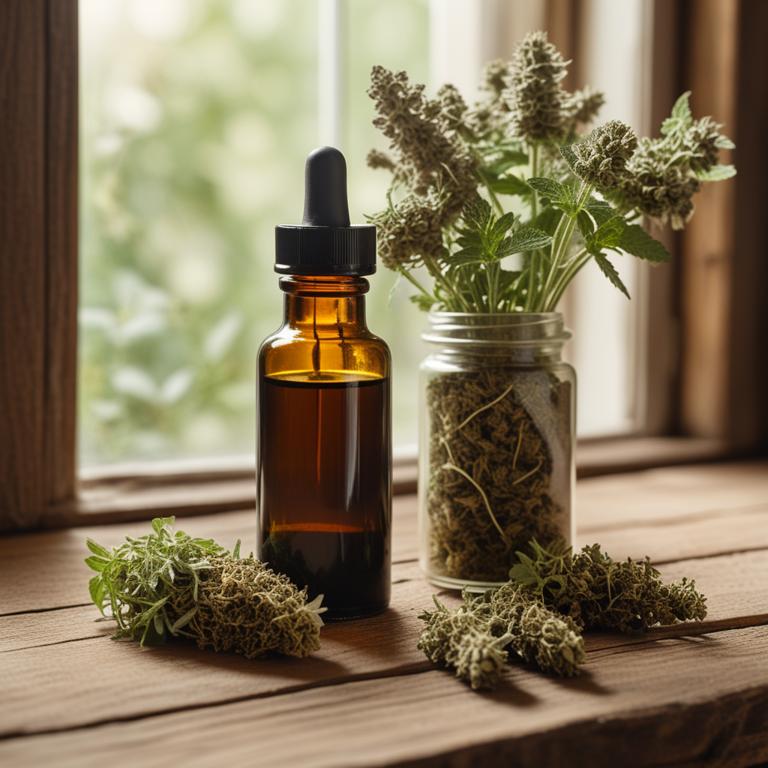
Melissa officinalis tinctures have been traditionally used to treat the itchy scalp ailment, also known as seborrheic dermatitis, due to their anti-inflammatory and antifungal properties.
This herbal preparation helps to treat the ailment by reducing inflammation, soothing the scalp, and controlling fungal growth, thereby providing relief from itching and flaking.
The bioactive constituents of Melissa officinalis, including citral, geranial, and linalool, contribute to its therapeutic effects by exhibiting antimicrobial and antioxidant activities.
Regular use of Melissa officinalis tinctures may help to alleviate symptoms of the itchy scalp, promote scalp health, and prevent further flare-ups.
8. Thymus serpyllum tinctures
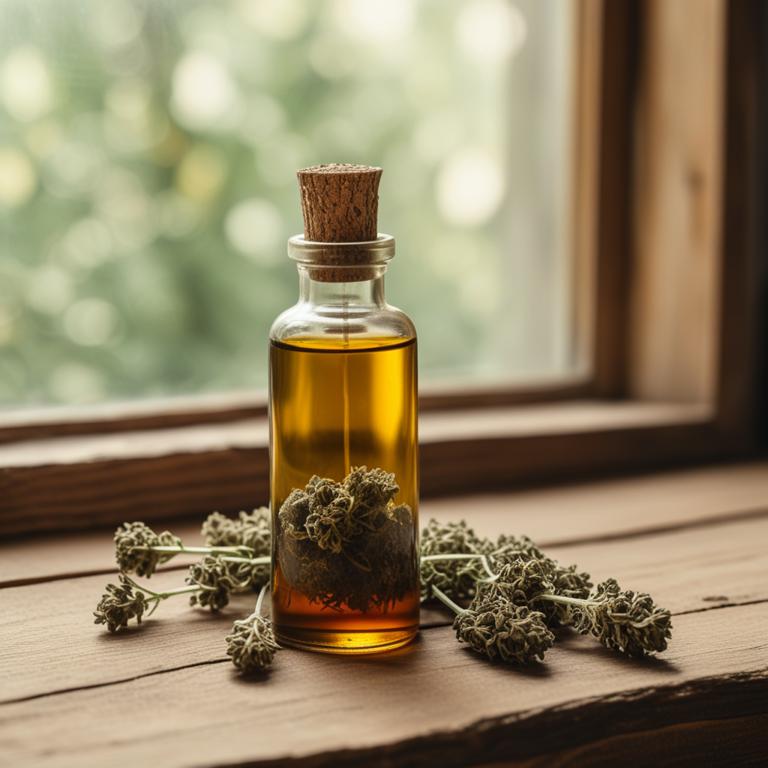
Thymus serpyllum tinctures have been traditionally used to treat the itchy scalp ailment, also known as dandruff or seborrheic dermatitis, due to its anti-inflammatory and antifungal properties.
The bioactive constituents of Thymus serpyllum, including thymol and carvacrol, help to inhibit the growth of Malassezia fungi, which can contribute to the development of this condition.
By reducing inflammation and preventing fungal overgrowth, Thymus serpyllum tinctures can help to soothe and calm an itchy scalp, promoting a healthy scalp environment.
The benefits of using Thymus serpyllum tinctures to treat an itchy scalp include reduced inflammation, improved scalp health, and a decrease in symptoms associated with dandruff and seborrheic dermatitis.
9. Calendula officinalis tinctures
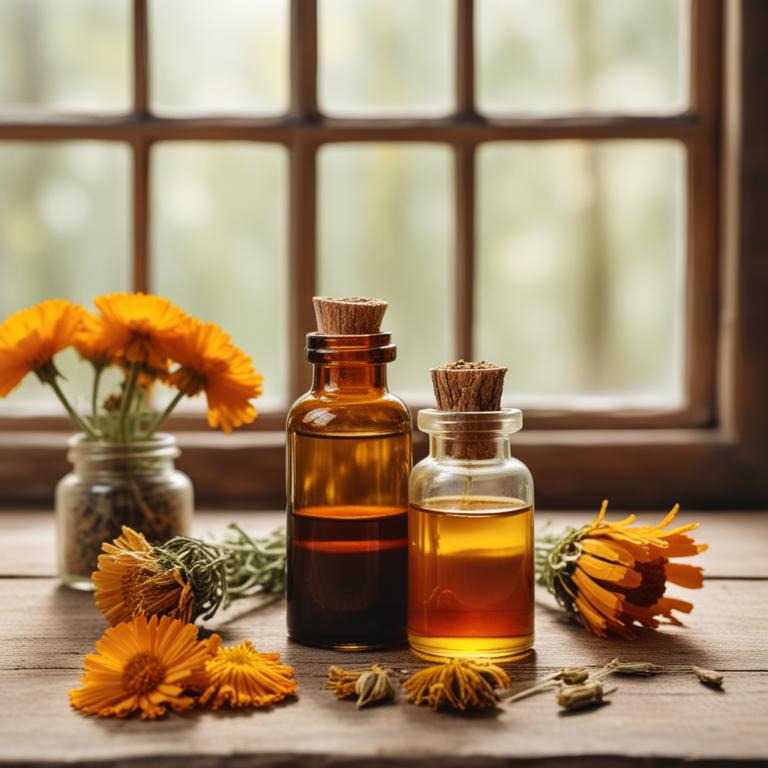
Calendula officinalis tinctures have been traditionally used to treat the itchy scalp ailment, specifically seborrheic dermatitis, due to their anti-inflammatory and antifungal properties.
These properties help to soothe and calm the itchy scalp, reducing inflammation and promoting a healthy scalp environment.
The bioactive constituents of Calendula officinalis, including triterpenoids, flavonoids, and carotenoids, contribute to its therapeutic effects by reducing oxidative stress and modulating the immune response.
By using Calendula officinalis tinctures, individuals can experience benefits such as reduced symptoms, improved scalp health, and enhanced overall well-being.
Related Study
According to "Phytomedicine : international journal of phytotherapy and phytopharmacology", Calendula officinalis tinctures for itchy scalp may have potential anti-inflammatory effects due to its presence in a three-herbs formula that alleviated symptoms of atopic dermatitis, such as ear redness, swelling, epidermal thickness, and inflammation.
10. Rosmarinus officinalis tinctures
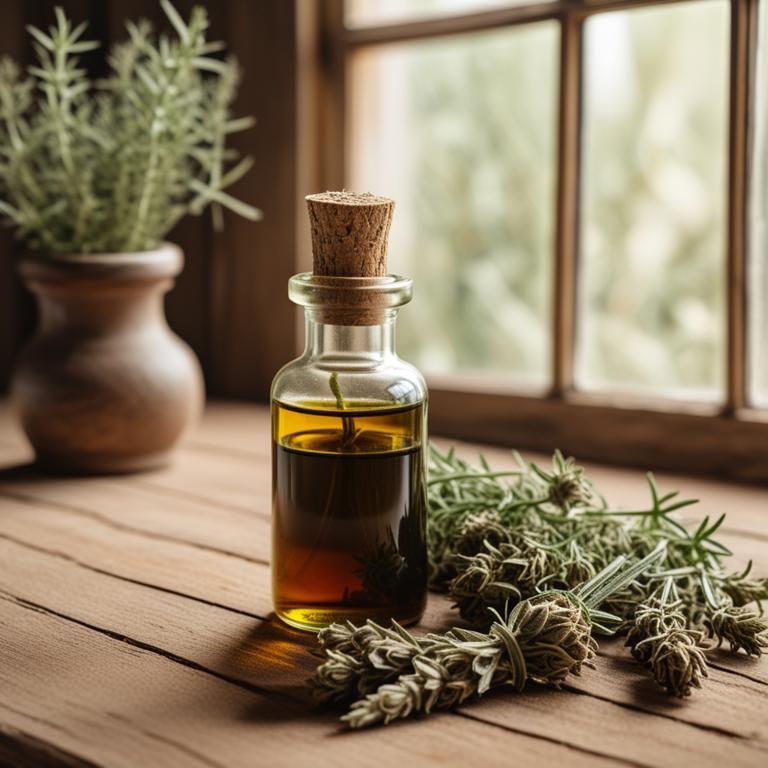
Rosmarinus officinalis tinctures have been traditionally used to treat the itchy scalp ailment due to their anti-inflammatory and antiseptic properties, which help to soothe and calm the scalp.
The bioactive constituents present in Rosmarinus officinalis, including camphor, borneol, and bornyl acetate, possess antimicrobial and anti-pruritic effects that aid in reducing itchiness and inflammation.
By reducing inflammation and eliminating fungal or bacterial infections, Rosmarinus officinalis tinctures help to alleviate symptoms associated with the itchy scalp ailment.
The benefits of using Rosmarinus officinalis tinctures to treat this ailment include a reduction in itchiness and inflammation, improved scalp health, and a natural alternative to conventional treatments.
Related Study
According to the given study, Rosmarinus officinalis tinctures are among the medicinal plants with bioactive compounds that have potential therapeutic effects against scabies and its related symptoms, including itchy scalp.
11. Lavandula angustifolia tinctures
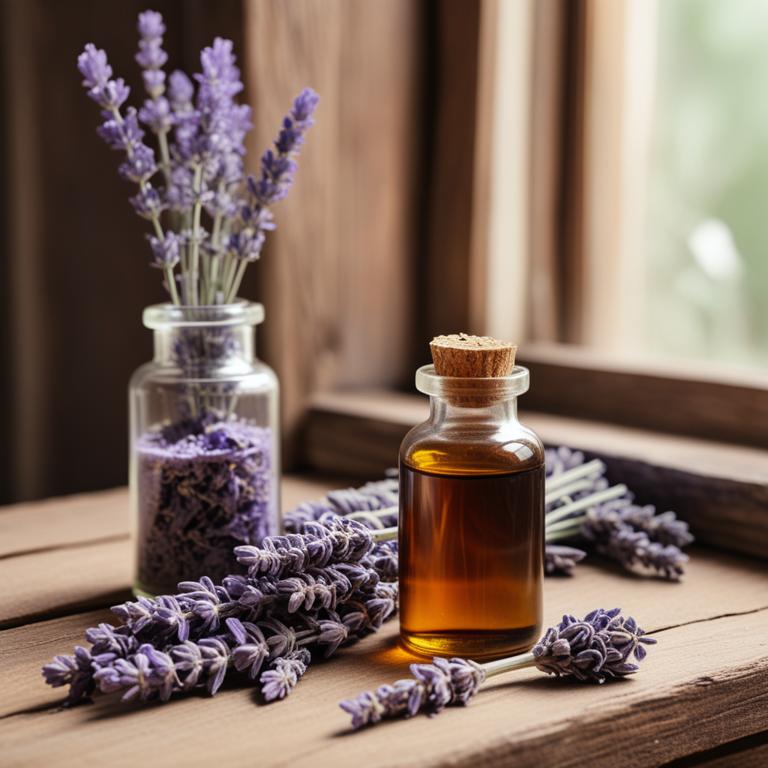
Lavandula angustifolia tinctures have been traditionally used to treat the itchy scalp ailment, also known as scalp eczema or seborrheic dermatitis, due to their anti-inflammatory and antiseptic properties.
The bioactive constituents of Lavandula angustifolia, such as linalool and linalyl acetate, help to soothe and calm the scalp, reducing inflammation and itching.
By applying the tincture to the affected area, it can help to reduce the symptoms of the condition, promoting a healthy scalp and preventing further irritation.
The benefits of using Lavandula angustifolia tinctures to treat itchy scalp include reducing inflammation, promoting relaxation, and providing a natural and non-invasive treatment option for this common condition.